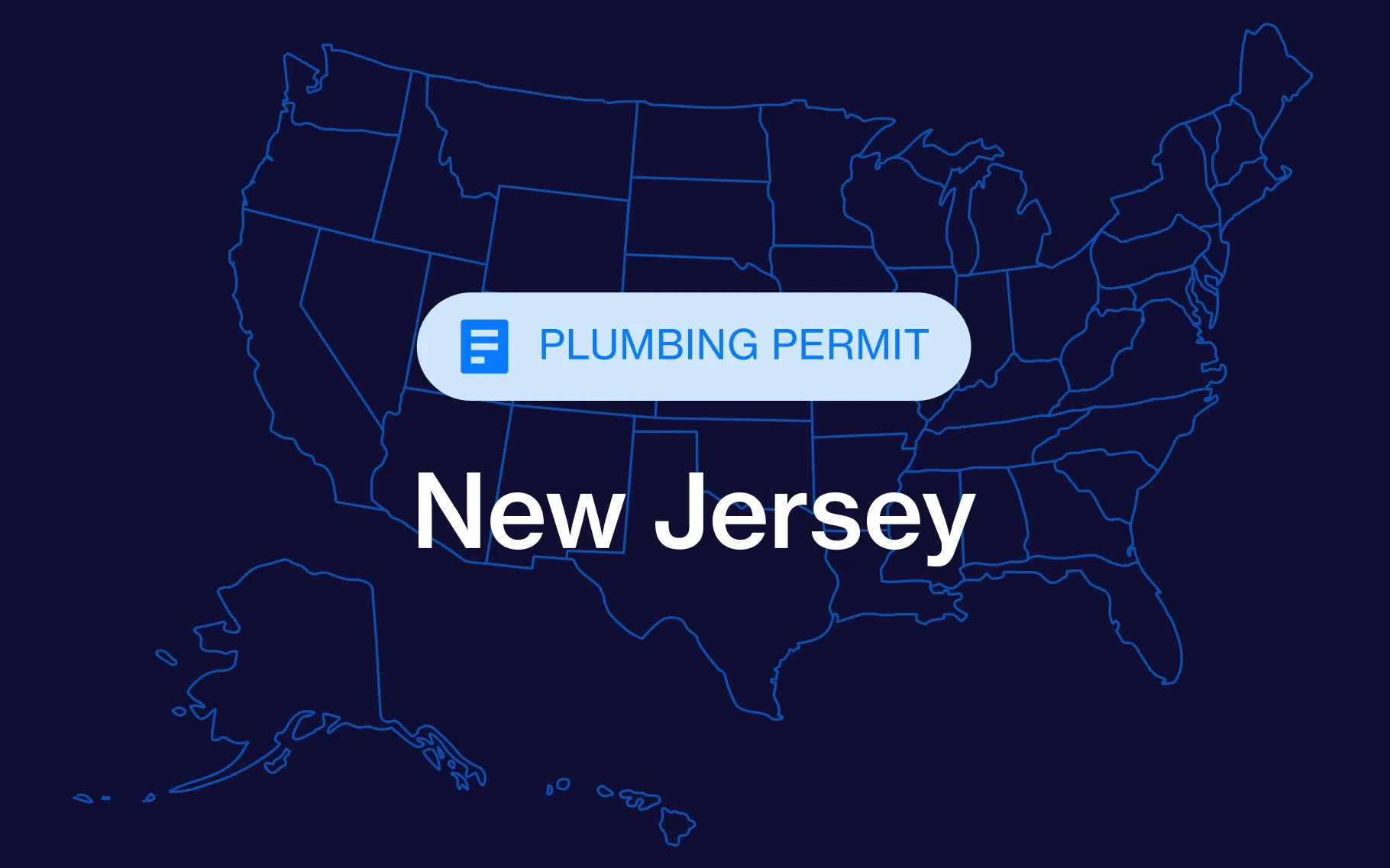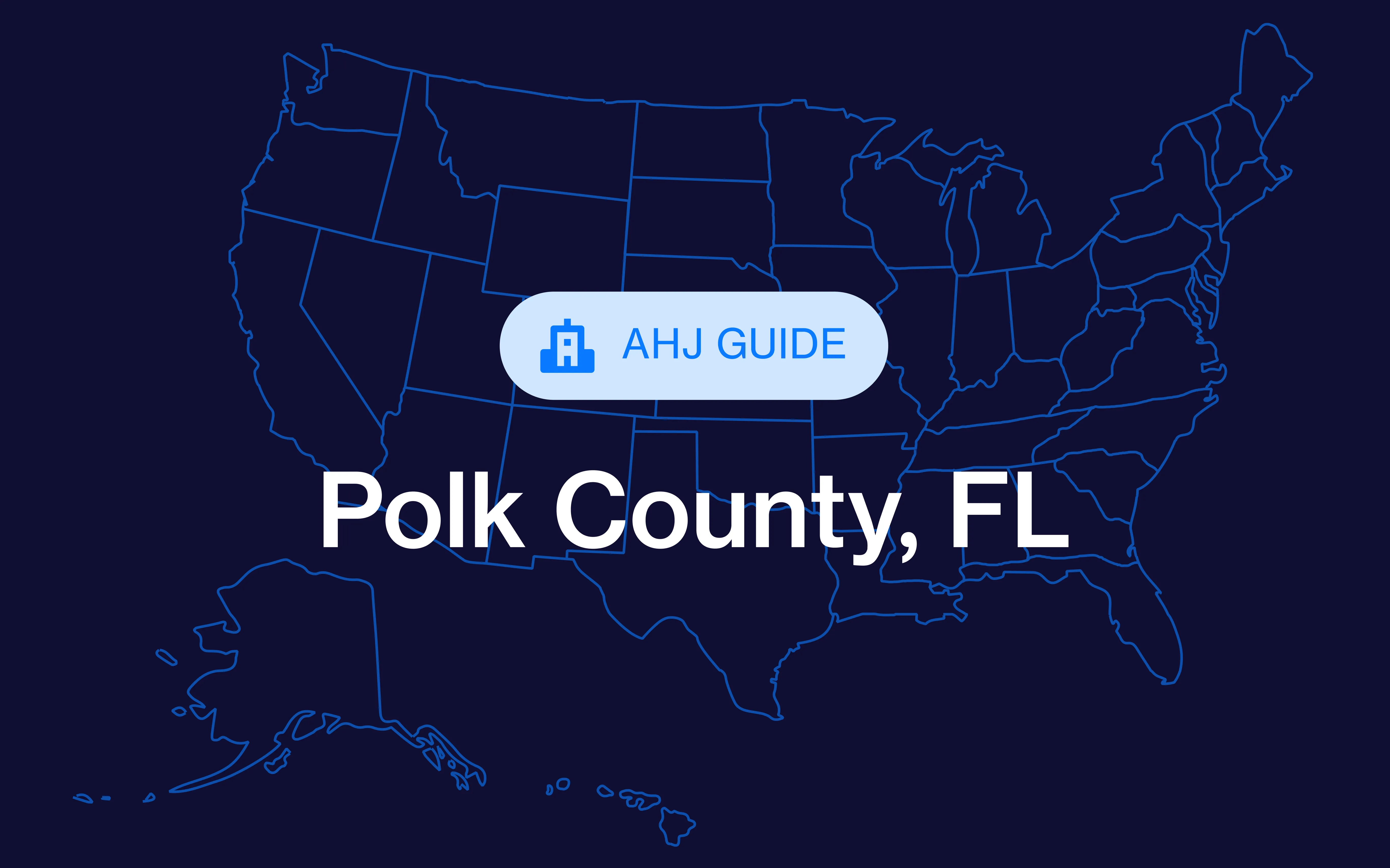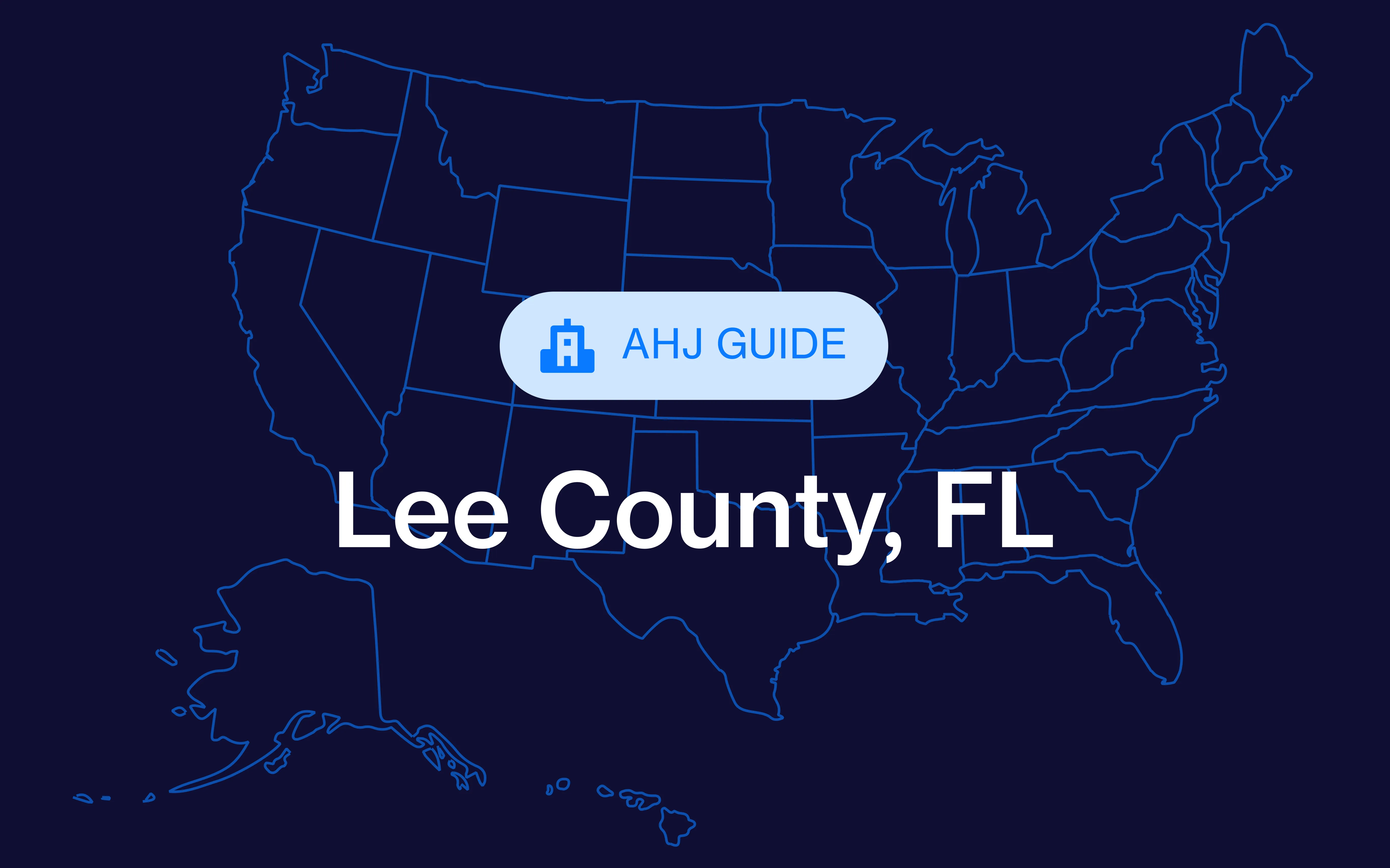If you're a licensed plumber or general contractor planning plumbing work in New Jersey, you’ll probably need the local jurisdiction’s blessing before you get started.
Swapping a water heater, adding a bath, or running new gas lines all trigger the NJ plumbing permit process — and every detail must satisfy the Uniform Construction Code’s plumbing subcode.
This guide shows you exactly how to sail through the paperwork, sidestep common pitfalls, and keep your project on schedule.
Pull plumbing permits in New Jersey faster with PermitFlow. Learn how.
Do you need a permit for plumbing work in NJ?
Yes, most plumbing work in New Jersey requires a permit, especially if it involves new installations, relocations, or significant alterations to water supply, drainage, or gas systems.
Common projects requiring a plumbing permit in NJ:
- New plumbing installations (e.g. fixtures, pipes)
- Alterations, relocation or extension of water supply or sewer lines
- Adding or altering gas piping (covered under plumbing subcode)
- Work in bathrooms, kitchens, basement plumbing, etc
Minor repairs, like replacing a washer or repairing a leaky faucet, typically do not require a permit. When in doubt, contact your local building department.

Plumbing Subcode NJ: What you need to follow
New Jersey enforces its plumbing standards under the Uniform Construction Code (N.J.A.C. 5:23-3.15). The Plumbing Subcode NJ is based on the 2021 National Standard Plumbing Code (NSPC), with amendments specific to New Jersey.
Key areas covered by the plumbing subcode:
- Minimum pipe sizes & venting: NJ amendments include updated wet venting rules and minimum frost cover levels for underground piping
- Water heater safety and temperature controls: Installation regulations and maximum hot-water outlet limits are enforced (e.g., 110 °F in public lavatories)
- Backflow prevention & cross-connection control: Protection measures follow NSPC plus NJ requirements aligned with Safe Drinking Water regulations
- Traps, cleanouts & drainage design: The code specifies trap seal depths, cleanout placement, backwater valve standards, and spacing rules
- Gas piping installations: The code includes requirements for fuel gas piping, separate from the Mechanical Subcode
- Fixture requirements & spacing: NJ amends NSPC’s fixture tables (e.g., number and type by occupancy type)
- Special systems: Appendices for suction entrapment avoidance, tiny houses, and stormwater rates have been added
All permitted work must comply with these standards. Violations can lead to failed inspections, stop-work orders, and costly corrections.
NJ plumbing permit requirements
Before applying, make sure you meet the NJ plumbing permit requirements:
- Work must be done by a licensed NJ plumber, except that a homeowner may perform plumbing work on their own single-family, owner-occupied residence
- You must provide a detailed scope of work, including fixture count, pipe materials/sizes, venting, water/sewer service, and gas piping
- Permits are issued via the Construction Permit NJ (F‑100) under the NJ Uniform Construction Code, which covers all trades
- A Plumbing Subcode Technical Section (F‑130) must be completed, including applicant info, estimated cost, fixture schedule, and system details
- Licensed plumbers must sign and seal F‑130 unless the homeowner qualifies as the “Exempt Applicant”
- Minor repairs may be exempt, but anything beyond basic maintenance requires a permit
- Failure to comply can result in fines up to $2,000, stop-work orders, or criminal penalties
Want to save time pulling plumbing permits in NJ? PermitFlow takes the guesswork out of subcode forms, plan reviews, and township-specific rules.
New Jersey plumbing permit fees
In New Jersey, plumbing permit costs are calculated per fixture or system component — simply tally the items and multiply by the municipality’s set rate.
Here are examples:
*Fixtures to include all fixtures and appliances connected to the plumbing, oil, or gas piping system except as listed below.
**Special devices include grease traps, oil separators, refrigeration units, utility service connections, backflow preventers equipped with test ports, steam boilers, hot water boilers (excluding those for domestic water heating), active solar systems, sewer pumps, and interceptors.
How to apply for a plumbing permit in NJ
Step 1: Gather documentation
Complete the UCC‑F100 Construction Permit Application and the F‑130 Plumbing Subcode Technical Section. Additionally, include necessary plans (drawings, site plan, plumbing diagram), typically two sets.
Step 2: Submit to your local construction office
Submit your completed F‑100 jacket, F‑130, and all plan sets, as originals and photocopies, to your local enforcing agency (municipal Construction/Code Office).
Not sure where to submit? Use your town or city’s website or search "plumbing permit + [your NJ town]" to find submission instructions. For example:
Step 3: Plan review and approval
Under N.J.A.C. 5:23‑2.16(a), your complete NJ plumbing permit application must be approved or denied within 20 business days. If plans come from the state level, they require pre-release; otherwise, local officials review for code compliance.
If corrections are needed, you receive comments and can resubmit. Revised plans are typically reviewed within 7 business days.
Step 4: Pay permit fees
Once approved, you’ll be informed of fees due. Payment (via check, credit card, in person, or online) is required before issuance. Fees include municipal permit fees (e.g., base, per‑fixture, special devices), plus any state surcharges.
Step 5: Schedule and complete inspections
You should notify the local agency to schedule inspections 24 hours in advance once work is ready. Upon passing final inspection and fee clearance, a Certificate of Occupancy or Final Approval is issued.
Helpful NJ plumbing permit resources
Here are some resources you might find useful to check out:
- Permit info:
- NJ Construction Permit Forms (State forms and subcode sections)
- East Brunswick Plumbing Permit Guide
- Woodbridge Township Construction Forms
- Plumbing permit NJ application forms:
- Uniform Construction Code (N.J.A.C. 5:23-3.15)
- UCC Regulations - NJ DCA
- Official website
Pull plumbing permits in New Jersey faster with PermitFlow
Paperwork shouldn’t keep your crews on standby. In New Jersey each town runs on its own forms, fees, and review cycles, so chasing permits can drain hours and throw your timelines off schedule.
PermitFlow lifts that weight.
Built for trade contractors, our platform makes it easy to prepare and submit permit applications that get approved the first time. Plus, you can track the status of every submission in one convenient place.
Plumbing contractors rely on PermitFlow because we offer:
- Statewide knowledge: We understand New Jersey's varied municipal requirements and ensure your plumbing permits meet local codes
- Trade-specific expertise: Our team knows plumbing permit requirements inside and out, from simple fixture replacements to complex commercial installations
- Multi-municipality tracking: Manage permits across every town you serve from one simple dashboard
- Speed and accuracy: Get your plumbing permits approved faster with properly prepared applications
Stop wasting time on permit paperwork. Contact PermitFlow today to streamline your New Jersey plumbing permits and get back to the work that pays.








